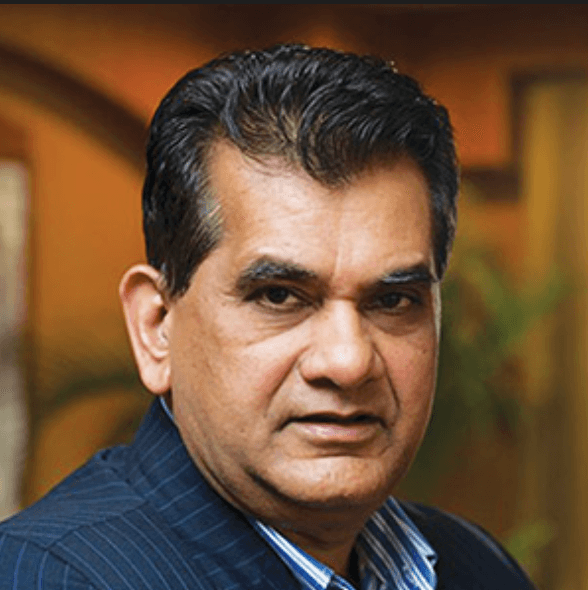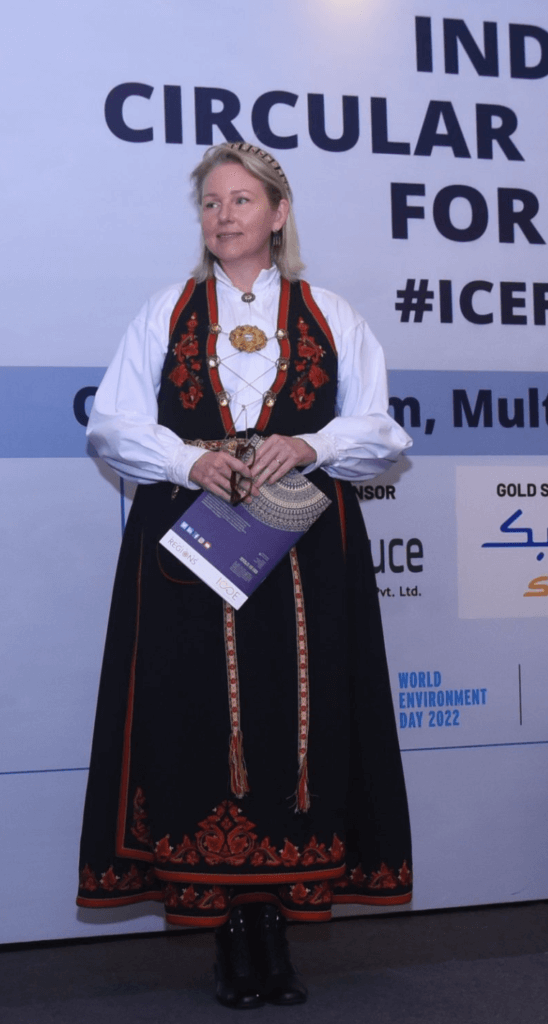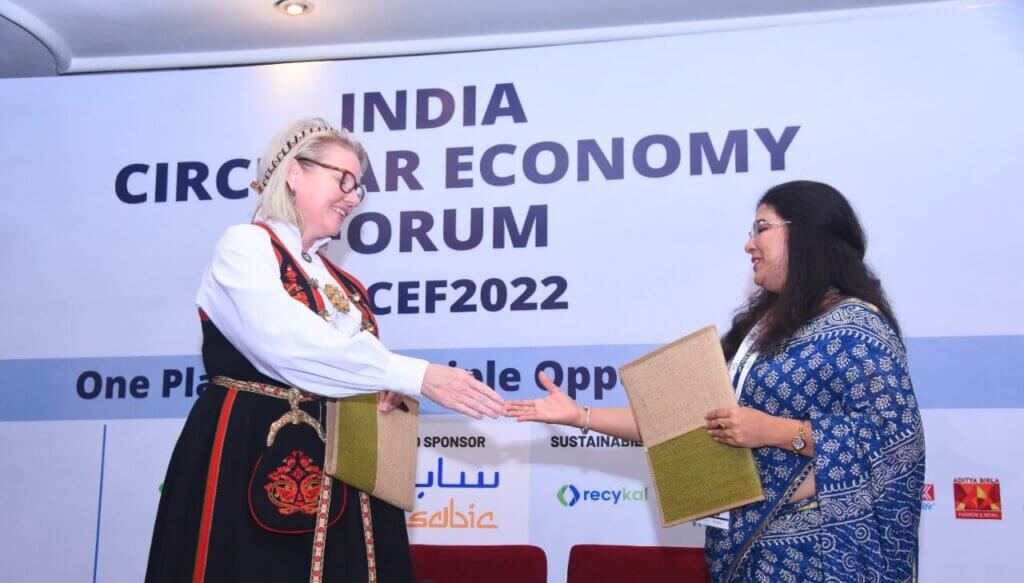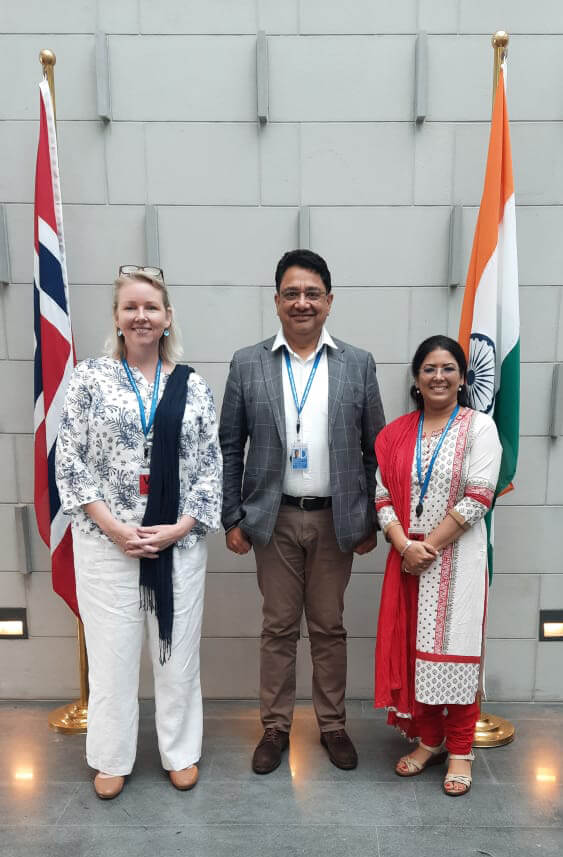The Circular Economy - Bridging the Global North and South via a Shared Intelligence
The International Council for Circular Economy’s (ICCE) first edition of the India Circular Economy Forum on June 2nd and 3rd, set the stage for India’s most impactful circular economy event to date. A platform for stakeholders to share insights, network, and learn from other circular economy experts and practitioners, bringing together stakeholders at all levels from across India and beyond to identify synergies and collaborate.

Shri Amitabh Kant, CEO Niti Aayog the Indian Government think tank, inaugurated the Forum stating “The action oriented approach of the Council has impressed me and I am delighted that it is providing a roadmap for the future with a pragmatic problem solving approach, and I want to compliment team ICCE and its supporting partners.” Adding that “The Ministry of Environment, Forest and Climate Change continues to partner with you. It will require us to understand what are the best practices”. “We do not need to reinvent the wheel, we need to learn from best practices around the world and this is what the Council should do. We look forward to constructive suggestions emerging from the Forum’s deliberations – whatever the recommendations are, we look forward to taking them forward to partnering with you and a very active collaboration between Niti Aayog and the Council.“
As part of the European delegation, which included the European Environmental Bureau, represented by Piotr Barczak, Axel Darut of CITEO, the French EPR scheme organisation; Cynthia Reynolds, Founder and Systems Architect of Circular Regions headquartered at Nesodden, Norway signed the Memorandum of Understanding with the Council in conjunction with the launch of their first collaborative report “Focus on Indian Business Circularity” where Circular Regions has provided pro-bono services for the training, technology, methodology and dissemination of the mapping Indian best practice initiatives enabling equitable access to empower organisations in the Global South.

The collaboration aims to:
- Strengthen multilateral relations and knowledge sharing between the Global North and South by bridging bottom-up and top-down circularity;
- Support a Shared Intelligence through data-driven solutions for the mapping of best practice circular initiatives compatible with internationally recognized frameworks;
- Support the development of better policies and economic incentives through research and dissemination;
- Collaboration on projects with stakeholders of all levels;
- Experience sharing and joint development of circular economy projects
THE NORWEGIAN BUNAD
An homage to Norwegian culture and a new symbol for the circular economy on the global stage
In light of this auspicious occasion, Ms. Reynolds donned her bunad, a Norwegian traditional folk costume. An iconic symbol for the circular economy, Norwegian bunads are the counterculture of fast-fashion. They are worn for most festive and celebratory occasions such as weddings, baptisms, confirmations and other formal events. Norwegians do so as opposed to buying an outfit that will only be worn once or only on a handful of occasions. They are often handed down from generation to generation. Bunads are designed for longevity and made with quality materials and skilled local craftsmanship – built to last a lifetime and then some – She noted that her daughter received a vintage one for her confirmation last year, “it is 70 years old and still looks like new”. Over 200 regional varieties exist, each with symbolic colours, embroidery designs and jewellery, celebrating regional cultures.

In her keynote address, she noted that Regions, both in Norway, India and elsewhere in the world each have a culture defined by their history, resources defined by nature and a future defined by their people.
The MoU between the International Council for Circular Economy and Circular Regions is targeted to bridge the Global North and South breaking down cultural and linguistic barriers to accelerate the transition to a Circular Economy; and no symbol could be more fitting than two female entrepreneurs in the spotlight each wearing their traditional national costumes, the Norwegian Bunad and the Indian Saree.

Royal Norwegian Embassy
Dr. Maan Singh Sidhu, Counsellor for Science, Technology and Higher Education at the Royal Norwegian Embassy, New Delhi, stated that “Norway have unique positions of strength, a wide range of biological resources from land and water, high technological knowledge, a competitive industry, and a well-educated population, to take a leading role towards a circular economy and bio-based economy”. Dr. Sidhu emphasized further that “these Norwegian strengths can be utilized to ensure green transition, rapid adaptability, improve market opportunities and competitiveness both in Norway and India”.

